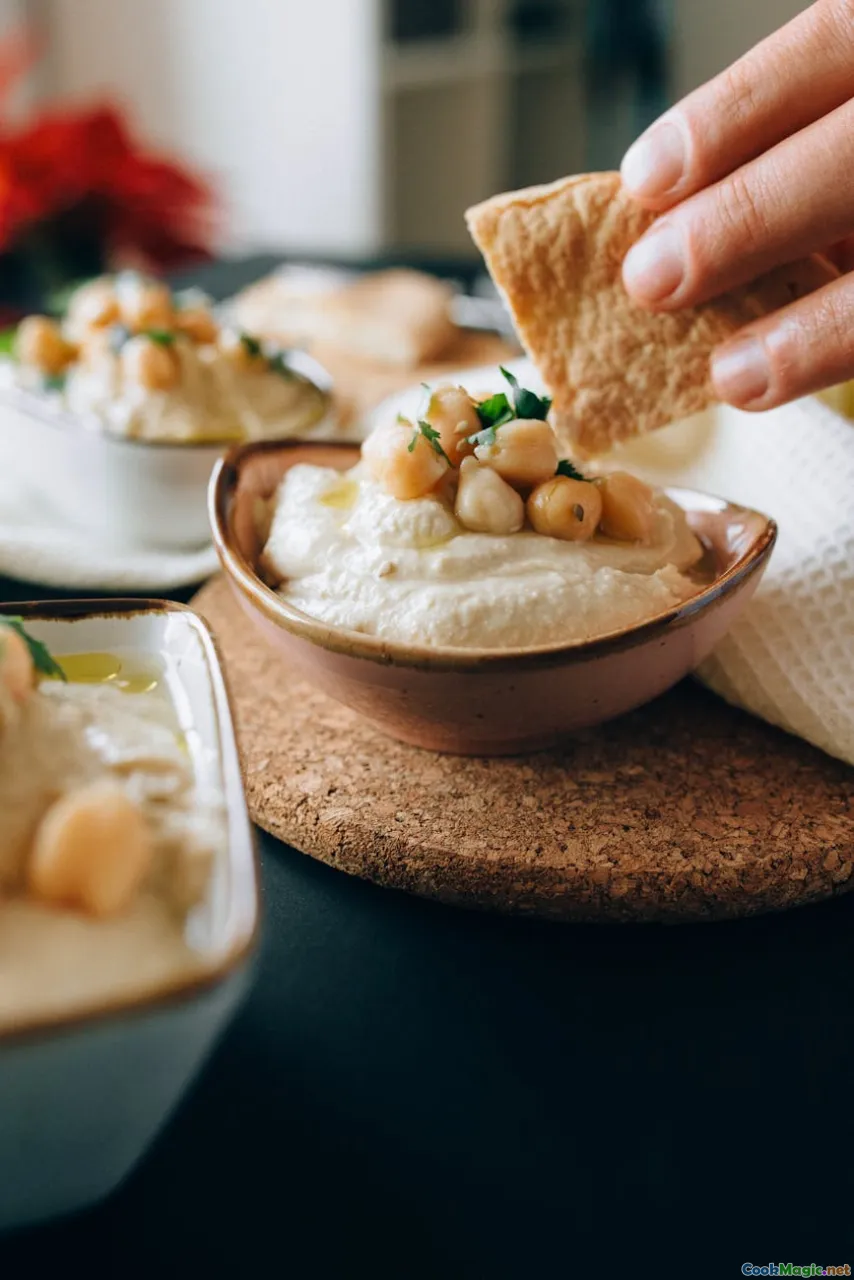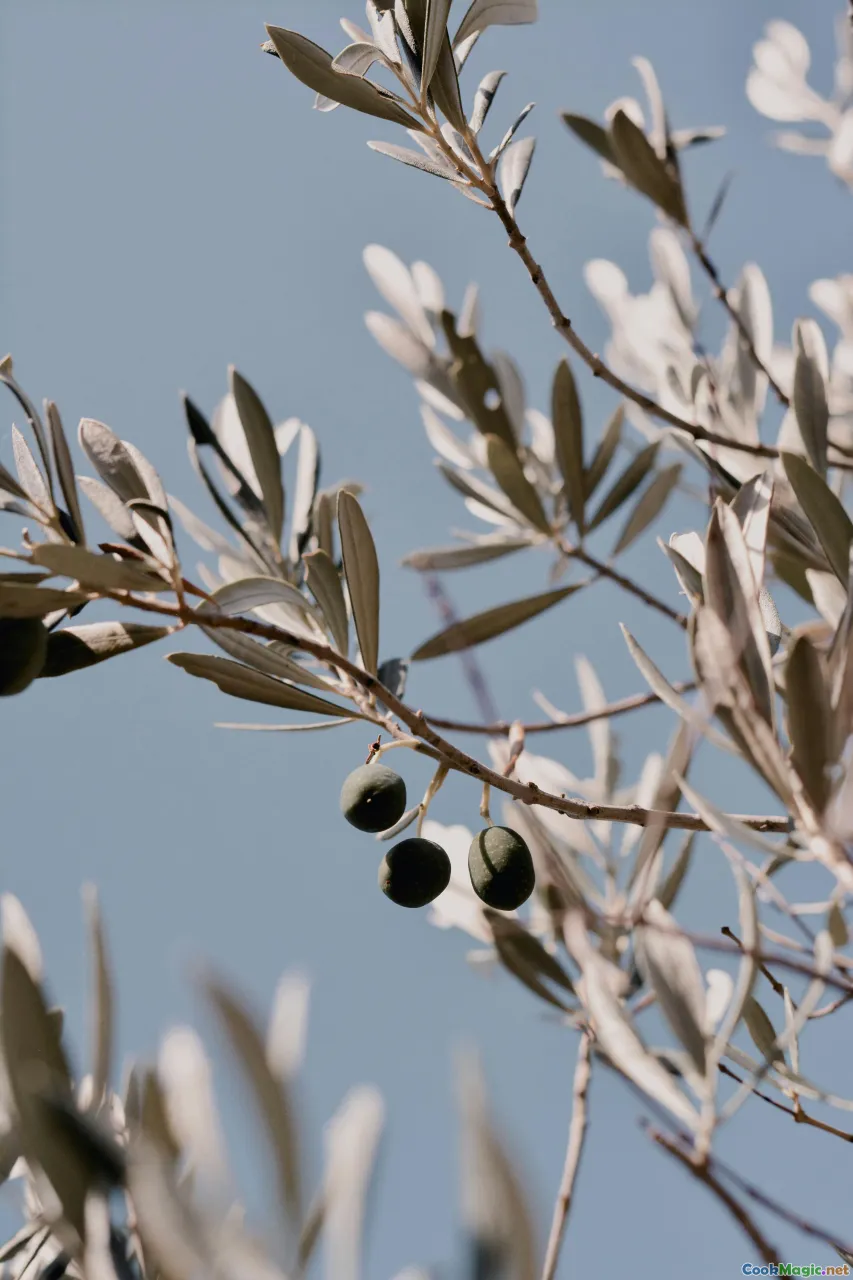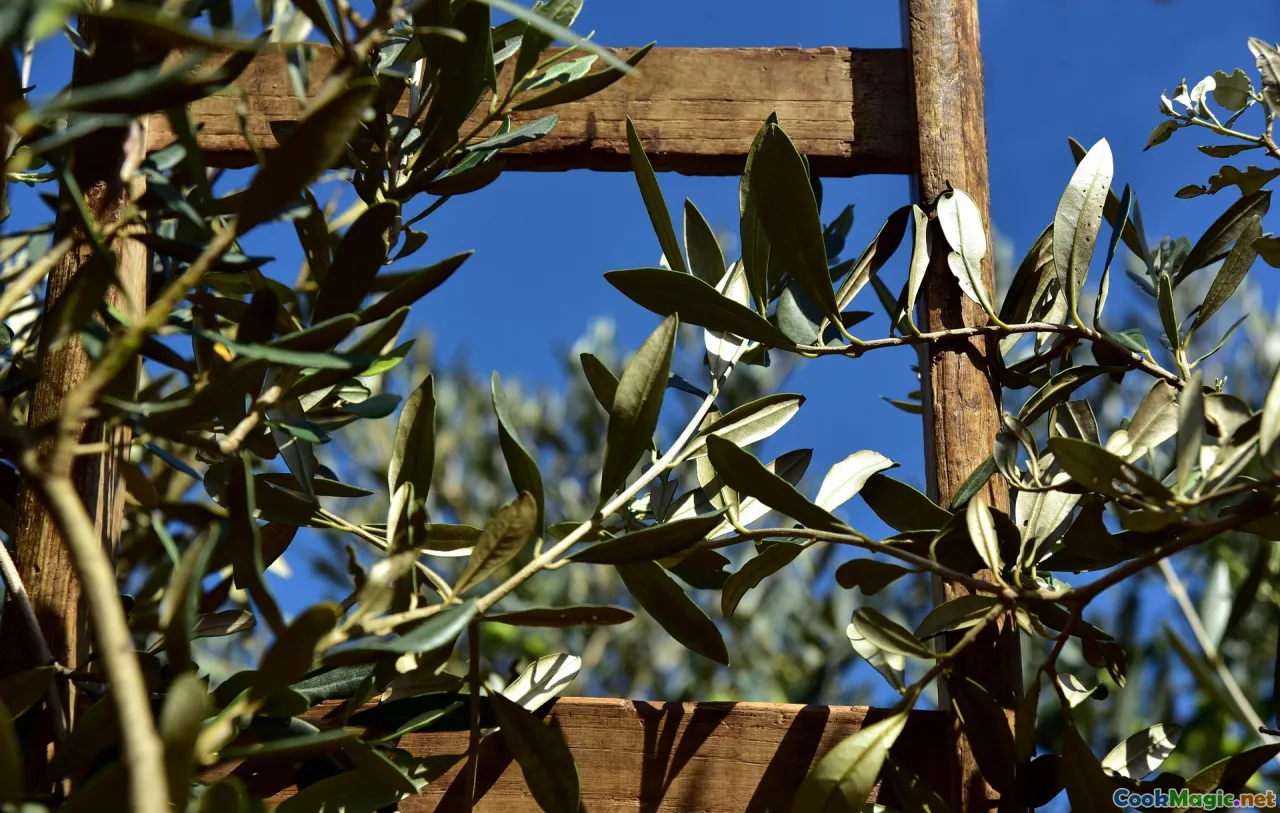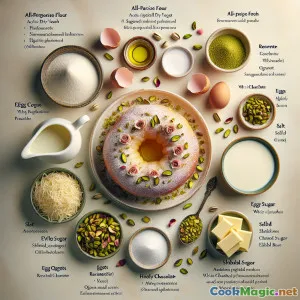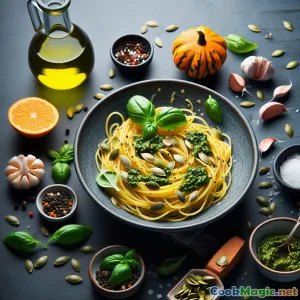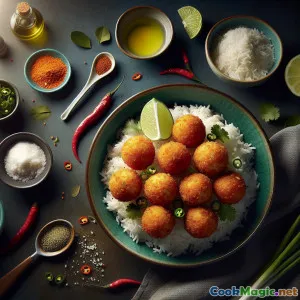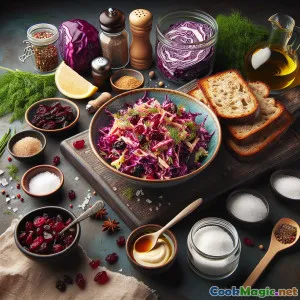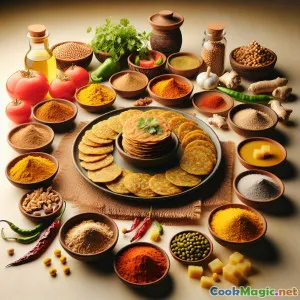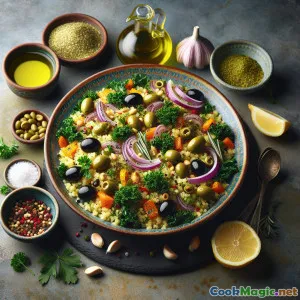
올리브 숲 마프툴 파일랏: 소박한 레반트 조화
(Olive Grove Maftoul Pilaf: Rustic Levantine Harmony)
(0 리뷰)재료
-
250 grams 마프툴(팔레스타인 쿠스쿠스)
(If unavailable, use Israeli pearl couscous)
-
3 tbsp 엑스트라 버진 올리브 오일
(High quality for flavor)
-
2 large 마늘 쪽
(잘게 다진)
-
1 medium 적양파
(곱게 다진)
-
100 grams 그린 올리브
(Pitted and sliced)
-
80 grams 케일 잎
(De-stemmed and thinly sliced)
-
600 ml 야채 육수
(Use hot for quicker cooking)
-
1 Lemon 레몬 1개의 제스트
(곱게 간)
-
20 grams 신선한 파슬리
(다진, 장식용)
-
20 grams 구운 잣
(Chopped or whole, for serving)
-
1/2 tsp 알레포 후추
(Or chili flakes, to taste)
-
1 tsp 소금
-
1/4 tsp 흑후추
(If unavailable, use Israeli pearl couscous)
(High quality for flavor)
(잘게 다진)
(곱게 다진)
(Pitted and sliced)
(De-stemmed and thinly sliced)
(Use hot for quicker cooking)
(곱게 간)
(다진, 장식용)
(Chopped or whole, for serving)
(Or chili flakes, to taste)
영양 정보
- 인분: 4
- 1인분 크기: 1접시 (250g)
- Calories: 415 kcal
- Carbohydrates: 61 g
- Protein: 11 g
- Fat: 15 g
- Fiber: 6 g
- Sugar: 4 g
- Sodium: 700 mg
- Cholesterol: 0 mg
- Calcium: 80 mg
- Iron: 2.6 mg
조리법
-
1 - Prepare Aromatics:
Heat olive oil in a large saucepan over medium. Sauté diced onion for 4 minutes until translucent, add garlic, and cook for 1 minute more until fragrant.
-
2 - Toast Maftoul:
Add maftoul to the pan. Stir well to coat grains in oil, toasting for 2-3 minutes until lightly golden and nutty in aroma.
-
3 - Add Greens and Olives:
Stir in kale, green olives, and lemon zest. Sauté for another minute to soften kale and meld flavors.
-
4 - Simmer Pilaf:
Pour in hot vegetable stock, add salt and black pepper. Stir, then bring to a gentle simmer. Cover and cook on low heat for 18-20 minutes, until the liquid is absorbed and maftoul is tender.
-
5 - Rest and Garnish:
Remove from heat, fluff with a fork, and let rest uncovered for 5 minutes. Stir through parsley. Top with pine nuts and a sprinkle of Aleppo pepper before serving.
Heat olive oil in a large saucepan over medium. Sauté diced onion for 4 minutes until translucent, add garlic, and cook for 1 minute more until fragrant.
Add maftoul to the pan. Stir well to coat grains in oil, toasting for 2-3 minutes until lightly golden and nutty in aroma.
Stir in kale, green olives, and lemon zest. Sauté for another minute to soften kale and meld flavors.
Pour in hot vegetable stock, add salt and black pepper. Stir, then bring to a gentle simmer. Cover and cook on low heat for 18-20 minutes, until the liquid is absorbed and maftoul is tender.
Remove from heat, fluff with a fork, and let rest uncovered for 5 minutes. Stir through parsley. Top with pine nuts and a sprinkle of Aleppo pepper before serving.
올리브 숲 마프툴 파일랏: 소박한 레반트 조화 :에 대한 자세한 정보
Olive Grove Maftoul Pilaf
Olive Grove Maftoul Pilaf is a dish inspired by both English countryside sensibilities and rich Middle Eastern tradition. Maftoul, sometimes called Palestinian couscous, is a hand-rolled wheat pearl—rustic, firm and behavioral, carrying the depth of Levantine memory, yet adaptable to Western tables and contemporary palates. This pilaf celebrates green olives and extra virgin olive oil, conjuring groves on warm stone hills and breeze-swept fields. Fragrant lemon zest brightens, while greens and gentle aromatics provide layers even enjoyed in vegetarian English kitchens.
A Brief History: Maftoul and Migration
Maftoul has its roots in Palestinian heritage, crafted by hand as women patiently rolled whole wheat flour around bulgur grains, later dried under the sun. It was enjoyed with stews flavored by gardens and groves—activated by modest larders, never extravagant but nourishing and deeply warming. When cross-cultural cuisine explorations gained taste in English homes, the ingredient completed a circular journey: similar to giant pearl couscous (popular in delis), yet grainier in bite and with a toasty, nutty aroma following it from Jerusalem to Yorkshire.
The practice of pilaf, meanwhile, comes from the geography between Persia, Turkiye, and across the Mediterranean, and evolved in various forms. The English-pilaf synthesis derives wellness-focused, plant-rich bowls that pack comfort and completeness, acquainted with both stews and creative one-pots designed for busy lives.
Tips & Notes
- Ingredient Flexibility: If maftoul isn't available, Israeli couscous is a fitting substitute, though maftoul’s flavor has more roasted, complex notes. This dish works with Swiss chard or even baby spinach if kale seems too rustic.
- Olives: Choose fleshy green olives to maximize brininess; Kalamata or mixed colored olives introduce deeper flavor.
- For Mildness: Omit Aleppo pepper, as the other flavors are already vibrant.
- Finishing Touch: Toasting the maftoul before simmering enhances its surface aromas—you can even toast it in a dry pan separately beforehand for a smokier finish.
- Stock: Use robust vegetable stock for the vegetarian option; chicken broth adds umami if needed.
- Village Bread: Serve with crusty sourdough or flatbread for a hearty countryside lunch or rustic dinner.
Unique Aspects
What makes Olive Grove Maftoul Pilaf unique is its sense of place—both the sun-drenched olive orchards of the eastern Mediterranean and England’s kitchen gardens. The flavor extraction from oil and olives, and citrus from zest, creates an accord not often found in conventional couscous salads or British grain bowls. The textural feel is richer and duskier, with pine nuts tracing aromas seen in both Mediterranean and English traditions.
Cultural Significance & Modern Appeal
Maftoul Pilaf borrows not only from memory but contemporary pantry innovation. As English diners embrace a wider palette and increased meat-free days, merging "cultural classics" into easy one-pot feats unfolds new comfort-food possibilities. This recipe is also environmentally friendly—lean on grains, green, and oil-rich fruit (olive) that require far less intensive farming. And yet, it's elegant enough for feasts.
Personal Notes
Cooking this pilaf, the aroma of olive oil and zested lemon always feels particularly comforting, evoking travels and familiar home kitchens alike. It invites experimentation: a sprinkle of goat cheese, a handful of raisins, or leftovers as lunch salads are all worthy riffs. Each spoonful is warm, wafting with story and sustenance—a wholeness that both delivers flavorful ecology to the table, and prompts conversation worth revisiting again and again.
Lifted from an olive grove, served from an English bowl—this recipe is humble yet abundant, echoing artisans and adventurers across time and place. Enjoy sharing, in sunlight or rain, with a touch of golden oil and family gathered round.

